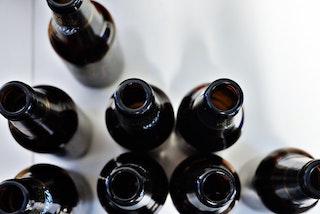
The social effects of the COVID-19 pandemic could exacerbate drinking— most concerningly in people with alcohol use disorder (AUD). Alcohol has the acute ability to dampen stress and is often used as a coping mechanism for anxiety. Historically, the collective panic induced by national disasters such as 9/11 or Hurrican Katrina has led to increased drinking among the public (Koob, 2020). Unfortunately, long-term alcohol use, especially from an early age, may cause changes in the brain that elevate the stress response, leading to a dangerous cycle of continually increased anxiety and drinking (Allen, 2016). Those suffering from AUD may have an especially difficult time controlling their drinking while experiencing the stress of the pandemic, making their addiction increasingly worse. Additionally, the stay-at-home orders and mandatory quarantines mean that patients receiving treatment for AUD lack structured time devoted to non-alcohol related activities, which is critical for many patients’ treatment plans (Da, 2020). Excessive boredom during quarantine may lead people with AUD to drink to fill their time. All this has led the health and scientific communities to anticipate an increase in drinking among people with AUD during the pandemic.
Not only is there a fear of stress-related drinking among people with AUD, but the infrastructure from which patients receive treatment appears to be impaired by social distancing requirements. In-group meetings and appointments with physicians, which for some patients are necessary to stay sober, are now being moved online or cancelled (NIAAA, April 2020). In some cases, this could decrease accountability and facilitate temptation to drink. Additionally, patients suffering alcohol-related liver disease have had trouble receiving its only curative therapy: liver transplantation. In regions where COVID-19 patients have overwhelmed the healthcare system there are fewer resources to devote to other medical procedures like organ transplantation. The number of hospitals performing transplants in the New York-New Jersey-Connecticut tri-state area was drastically reduced during the peak of the northeast pandemic, along with the number of AUD patients receiving treatment (Da, 2020). Overall, both the medical and social aspects of AUD treatment plans have seen disruptions which could weaken their effectiveness, culminating in increased relapses among people with alcohol use problems.
There is also substantial public confusion regarding the effect of alcohol on the coronavirus, probably stemming from its use as a disinfectant. While alcohol-containing hand sanitizers may destroy the coronavirus on surfaces, drinking alcohol provides no protection from the virus. The blood alcohol concentration required to achieve such an effect would be far beyond a fatal dose (NIAAA, May 2020). In fact, alcohol misuse makes the body more susceptible to infection, meaning that if a person has a heavy dose of alcohol in their system at the same time as the coronavirus, they could be more likely to develop serious complications from COVID-19. Alcohol abuse may increase a person’s risk of developing acute respiratory distress syndrome (ARDS). Since ARDS is a life-threatening manifestation of COVID-19, people with AUD who develop COVID-19 could have higher risk of a fatal outcome.
In closing, people struggling with alcohol addiction face several health issues related to the pandemic. There is a fear of increased stress-related drinking, treatment programs are more difficult to operate under social distancing measures, and people with COVID-19 and AUD may find themselves at greater risk of dying from the illness. It is critical that the scientific community come together to conduct more research on AUD and treatment during this pandemic to avoid greater loss of life.
Author: Cory Kittleman
Edited by Drs. Robert O. Messing and Emma Erickson, and Niki Garcia-Holmes
Photo by Thomas Picauly on Unsplash
References
- Allen, Camryn. Exposure to alcohol during adolescence exerts long-term effects on stress response and the adult brain stress circuits. Neuroscience vol. 339 pp 64-71. December 2016.
- Da, Ben L. “COVID‐19 Hangover: A Rising Tide of Alcohol Use Disorder and Alcohol Associated Liver Disease.” Hepatology : official journal of the American Association for the Study of Liver Diseases. ja n. pag. Web.
- Koob, George F. Alcohol poses different challenges during the COVID-19 pandemic. NIAAA Director’s Blog. April 2020.
- NIAAA. Alcohol Treatment and Physical Distancing. April 2020.
- NIAAA. Drinking alcohol does not prevent or treat coronavirus infection and may impair immune system. May 2020.
- NIDA. (2020, April 2). NIDA Director outlines potential risks to people who smoke and use drugs during COVID-19 pandemic. Retrieved from https://www.drugabuse.gov/news-events/announcement/nida-director-outlin… on May 16, 2020.